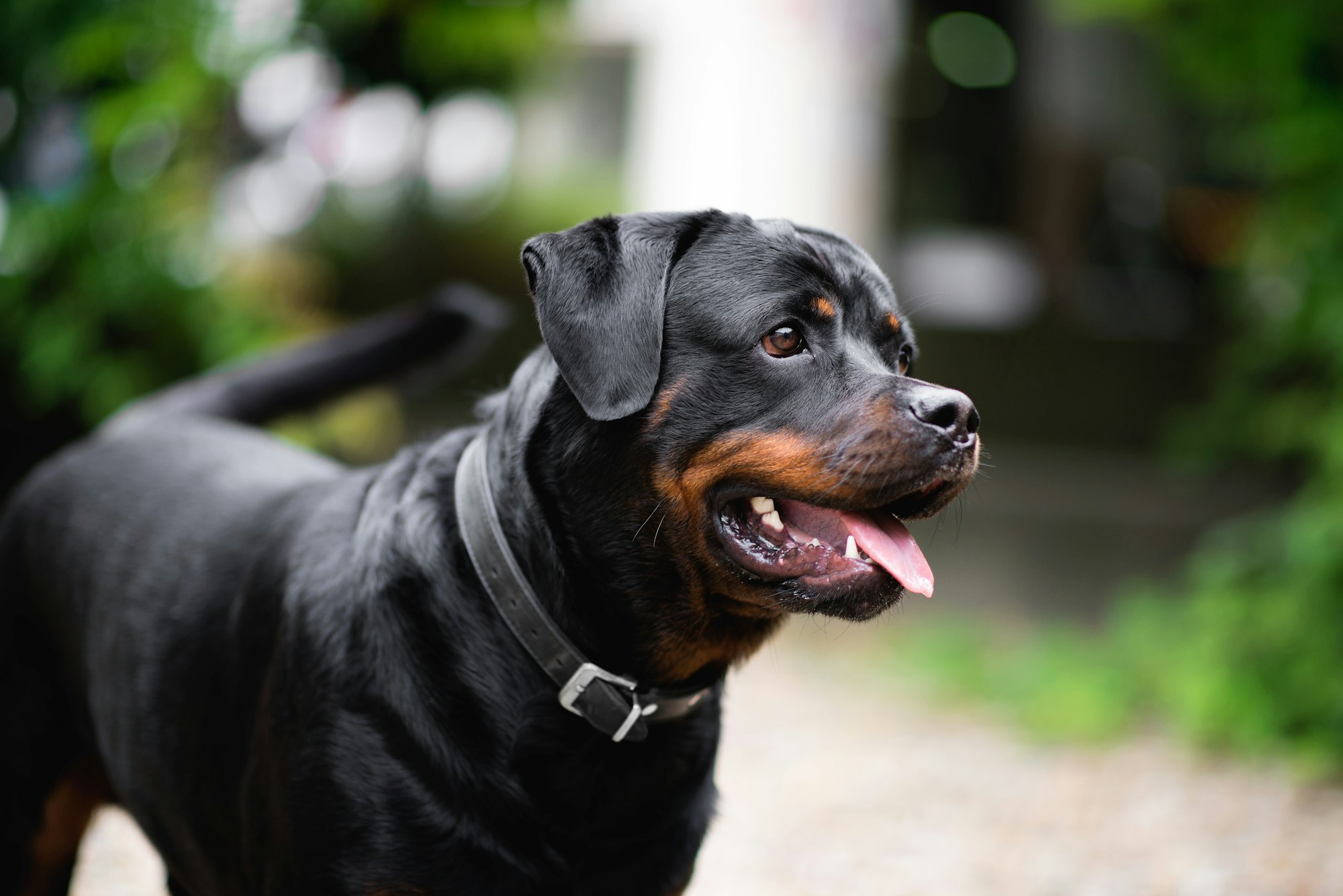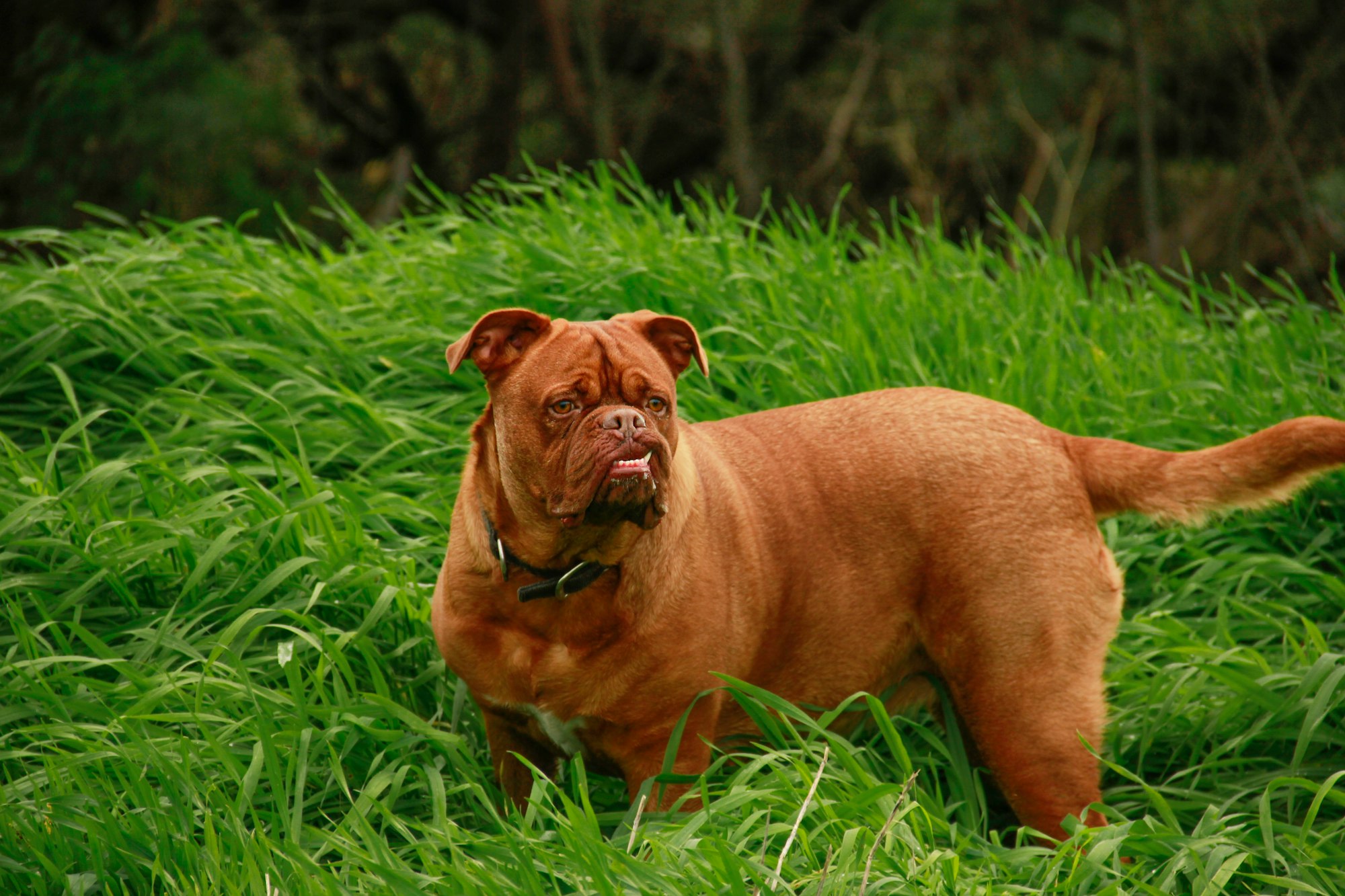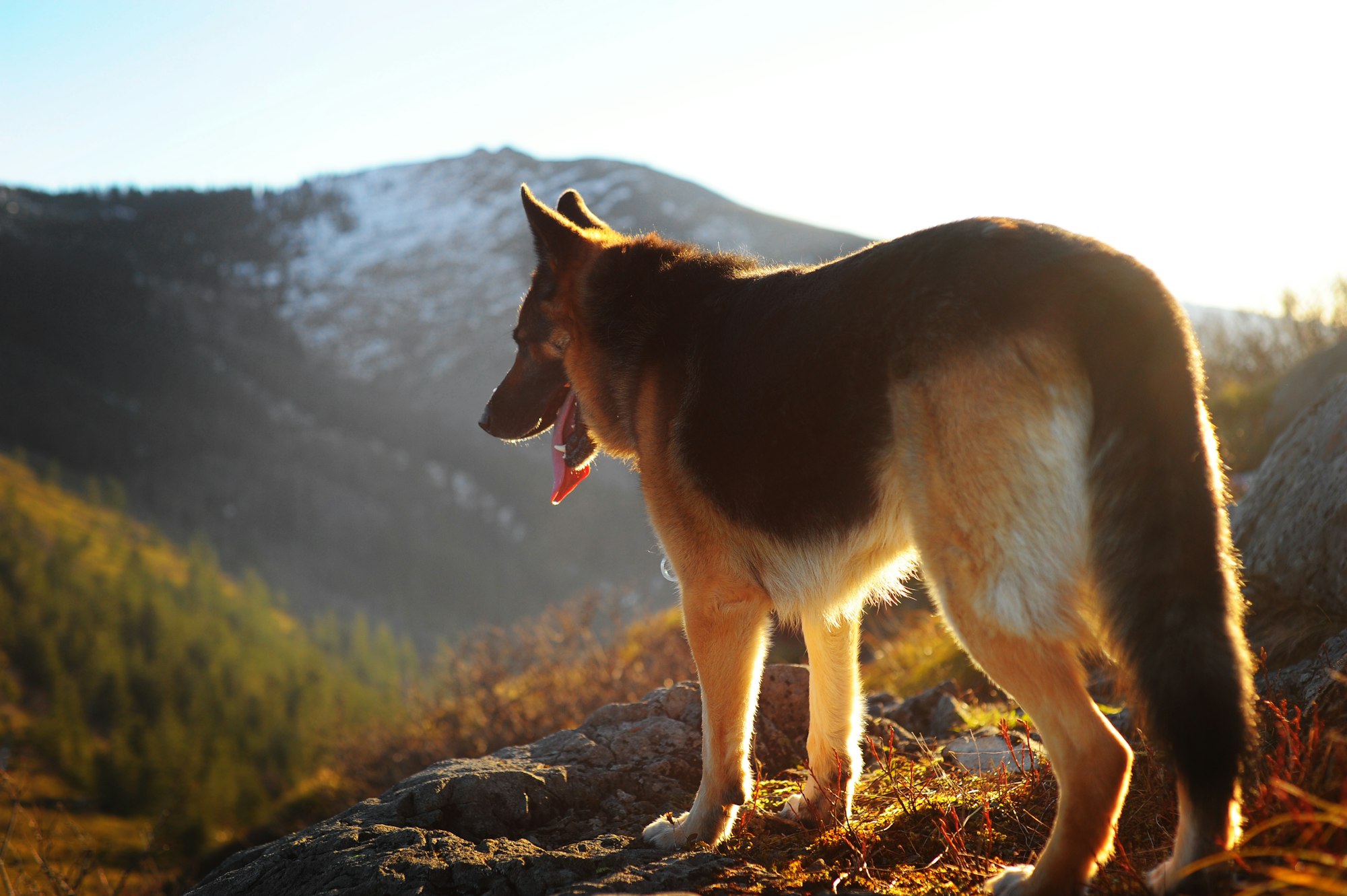Dogs have always been known for their loyalty, companionship, and diverse abilities. While all dogs possess unique strengths, some breeds stand out for their exceptional physical power and strength. In this article, we will explore the world of the strongest dog breeds and delve into what makes them formidable companions. Whether you're an admirer of powerful canines or considering getting a strong dog breed as a pet, this article will provide valuable insights into these incredible animals.

Understanding Strength in Dogs
Strength in dogs is a multifaceted concept that encompasses various factors. When considering the strength of a dog, it is essential to evaluate different aspects, including physical attributes, temperament, and working abilities.
Physical Attributes:
Physical strength in dogs is often associated with their muscular build, size, and weight. Certain breeds naturally possess a more robust and powerful physique, which contributes to their overall strength. Muscular dogs with well-developed bodies are typically capable of exerting more force and displaying impressive power.
Bite Force:
Another important aspect of strength in dogs is their bite force. The bite force refers to the pressure exerted by a dog's jaw muscles while biting. Dogs with a strong bite force can deliver a significant amount of pressure, allowing them to tackle tasks that require forceful gripping or biting.
Temperament:
A dog's temperament also plays a role in determining its strength. Dogs that exhibit a confident, assertive, and determined temperament tend to display more strength in various situations. However, it's important to note that a strong temperament alone does not guarantee physical strength; it is a combination of both physical attributes and temperament that contributes to a dog's overall strength.
Working Abilities:
Certain dog breeds were selectively bred for specific tasks that required strength and power. For example, breeds used for herding, guarding, or pulling tasks often possess enhanced strength and working abilities. These dogs were historically bred to exhibit traits that enable them to perform physically demanding tasks effectively.
Criteria for Determining Strongest Dog Breeds
Determining the strongest dog breeds requires considering specific criteria that encompass physical attributes, abilities, and historical roles. The following factors are commonly evaluated when identifying the strongest dog breeds:
Physical Strength:
Physical strength is a primary criterion for determining the strongest dog breeds. This includes assessing their muscular build, bone structure, size, weight, and overall power. Dogs that possess a well-developed physique with strong muscles and sturdy bones are often considered physically strong.
Bite Force:
A dog's bite force is a significant indicator of its strength. Breeds with a powerful bite force can exert significant pressure, showcasing their physical prowess. Measuring a dog's bite force involves analyzing the strength of its jaw muscles and the amount of pressure it can exert while biting.
Endurance:
While strength is commonly associated with short bursts of power, endurance is also a vital factor. Endurance refers to a dog's ability to sustain physical activity for extended periods. Breeds with high endurance can maintain their strength and power over long durations, making them suitable for tasks that require stamina.
Working Abilities:
The historical roles and working abilities of dog breeds provide valuable insights into their strength. Breeds that have been traditionally employed in physically demanding tasks such as guarding, herding, or pulling heavy loads often possess exceptional strength. Their ability to perform these tasks effectively demonstrates their strength and power.
By considering these criteria, it is possible to identify the strongest dog breeds based on their physical attributes, bite force, endurance, and historical roles. However, it is necessary to note that individual dogs may vary in their strength even within a particular breed, as factors such as genetics, training, and care also influence a dog's overall strength.
Top 5 Strongest Dog Breeds
Let's explore the top five strongest dog breeds:

1. Mastiff
The Mastiff is a gentle giant with incredible strength. This breed boasts an imposing stature and an impressive bite force. Originally bred as guard dogs, Mastiffs possess a calm and protective nature. Their muscular build and solid frame make them one of the strongest dog breeds.
2. Rottweiler
The Rottweiler is a versatile and robust breed. Renowned for their loyalty and protective instincts, Rottweilers excel in various tasks. They possess a strong bite force and a muscular body, making them formidable companions. With proper training and socialization, Rottweilers can channel their strength effectively.
3. German Shepherd
German Shepherds are renowned for their intelligence, versatility, and exceptional strength. This breed is often employed in police and military work due to their impressive physical abilities. With a combination of strength, agility, and trainability, German Shepherds are highly regarded as one of the strongest good family dog breeds.
4. Siberian Husky
While Siberian Huskies are primarily known for their endurance and sled-pulling abilities, they also possess remarkable strength. Their muscular build and remarkable stamina enable them to excel in physically demanding tasks. Despite their strength, Huskies maintain a friendly and sociable disposition. We answer here a more common question Do huskies bite?
5. Pit Bull Terrier
The Pit Bull Terrier is a breed that often garners misconceptions. While their reputation may be clouded by negative stereotypes, Pit Bulls possess exceptional strength and athletic abilities. With proper training, socialization, and responsible ownership, Pit Bulls can be loyal, loving companions.
Training and Care for Strong Dog Breeds
Training and proper care are crucial for strong dog breeds to ensure their strength is channeled effectively and they can be well-behaved and obedient companions. Here are some essential considerations when it comes to training and caring for strong dog breeds:
Early Socialization:
Early socialization is vital for strong dog breeds to develop appropriate behavior and interactions with people and other animals. Expose them to various environments, sounds, and experiences from a young age to help them become well-rounded and confident dogs.
Positive Reinforcement Training:
Positive reinforcement training techniques, such as rewards, praise, and treats, work best for strong dog breeds. These dogs respond well to positive reinforcement and are motivated to learn and please their owners. Use consistent training methods to establish clear boundaries and commands.
Obedience Training:
Obedience training is essential for strong dog breeds to ensure they understand and respond to commands reliably. Teach them basic commands like sit, stay, come, and heel. Advanced obedience training can further enhance their ability to follow instructions and behave appropriately in different situations.
Physical Exercise:
Strong dog breeds have high energy levels and require regular physical exercise to maintain their overall well-being. Engage them in activities that challenge their strength and endurance, such as long walks, jogging, swimming, or agility training. Providing them with sufficient exercise helps prevent boredom and destructive behaviors.
Mental Stimulation:
In addition to physical exercise, strong dog breeds also need mental stimulation. Interactive games, puzzle toys, and obedience training sessions that incorporate mental challenges can keep their minds engaged and prevent behavioral problems resulting from boredom.
Consistent Leadership:
Strong dog breeds thrive under consistent leadership. Establish yourself as the pack leader through consistent rules, boundaries, and expectations. Be firm, fair, and confident in your interactions with them, as this helps them feel secure and reassured.
Proper Nutrition and Healthcare:
A balanced and nutritious diet is vital for the overall health and strength of strong dog breeds. Consult with a veterinarian to determine the appropriate diet based on their age, size, and activity level. Regular veterinary check-ups, vaccinations, and preventive care are also essential to keep them healthy and address any health issues promptly.
Benefits of Owning a Strong Dog Breed
Owning a strong dog breed comes with several benefits for the right owner. Here are some advantages of having a strong dog breed as a companion:

Security and Protection:
Strong dog breeds can provide a sense of security and protection to their owners and their properties. Their physical strength and imposing presence act as a deterrent to potential intruders, making them excellent guard dogs.
Versatility and Working Capabilities:
Many strong dog breeds possess exceptional working capabilities, making them versatile companions. They can excel in various roles such as search and rescue, service work, therapy work, herding, and even sports such as weight pulling or agility. Their strength and intelligence make them well-suited for these tasks.
Active Lifestyle:
Strong dog breeds often require an active lifestyle, which can benefit owners who enjoy outdoor activities and exercise. Engaging in physical activities with these dogs, such as hiking, running, or playing fetch, can promote a healthy lifestyle for both the dog and the owner.
Companionship and Loyalty:
Strong dog breeds are known for their loyalty and devotion to their owners. They form deep bonds with their families and can be incredibly loving and affectionate companions. The strong bond that develops between these dogs and their owners can be immensely rewarding.
Opportunity for Personal Growth:
Owning and training a strong dog breed can be a transformative experience that fosters personal growth. It requires dedication, responsibility, and patience. Successfully training and caring for a strong dog breed can instill confidence, discipline, and a sense of achievement.
Remember, owning a strong dog breed is a significant commitment that requires responsible ownership, proper training, and care. These breeds thrive in environments where they receive love, attention, and opportunities to channel their strength positively.

Myths and Misconceptions about Strong Dog Breeds
Strong dog breeds often face misconceptions and stereotypes that can lead to misunderstandings about their temperament and behavior. It is essential to debunk these myths and promote a more accurate understanding of these breeds. Here are some common myths and misconceptions about strong dog breeds:
Myth 1: Strong Breeds Are Naturally Aggressive:
One prevalent myth is that strong dog breeds are inherently aggressive or dangerous. In reality, a dog's behavior is influenced by a combination of factors, including genetics, socialization, training, and individual temperament. While certain breeds may have physical strength, it does not automatically translate to aggression. Responsible ownership, proper training, and socialization play a significant role in shaping a dog's behavior.
Myth 2: Strong Breeds Cannot Be Family Pets:
Another misconception is that strong dog breeds are not suitable for families or homes with children. In truth, many strong dog breeds can make excellent family pets when raised and socialized properly. With early socialization, consistent training, and positive reinforcement, strong breeds can be gentle, loyal, and loving companions for all family members.
Myth 3: Strong Breeds Are Hard to Control:
The notion that robust dog breeds are difficult to manage because of their physical power exists, but it's not the full story. While these dogs do need a stable authority figure and regular training, they're quite capable of learning obedience and good manners. Employing positive reinforcement strategies, as well as setting clear rules and maintaining consistent expectations, can lead to a well-behaved and controlled strong breed. Interestingly, unlike strong breeds that may require specialized training, Yorkies shed less and typically need less intense exercise and training.
Myth 4: Strong Breeds Have Locking Jaws:
A persistent myth surrounding strong dog breeds, such as Pit Bulls, is that they have "locking jaws." In reality, no dog breed has a locking mechanism in their jaws. All dog breeds have the same basic anatomical structure for their jaws. The strength of a dog's bite primarily depends on the size of their muscles and the force they can exert.
Myth 5: Strong Breeds Are Not Good With Other Animals:
Strong dog breeds are often believed to be incompatible with other animals, such as smaller pets or other dogs. However, with proper socialization and gradual introductions, strong breeds can coexist peacefully with other animals. Early socialization and positive experiences can help them develop appropriate behavior and reduce any potential aggression or dominance issues.
It is crucial to approach strong dog breeds with an open mind and dispel these myths and misconceptions. Each happy dog should be judged based on its temperament, training, and socialization experiences. Responsible ownership, proper training, and education are key to fostering a positive perception of strong breeds and ensuring their well-being in our communities.

Frequently Asked Questions
1. Q: Are strong dog breeds suitable for families with children?
A: Yes, strong dog breeds can be suitable for families with children. Proper training, socialization, and supervision are crucial for a harmonious relationship between the dog and the children.
2. Q: Do strong dog breeds require more exercise than other breeds?
A: Yes, strong dog breeds generally require more exercise due to their energy levels and muscular build. Regular physical activity is essential to keep them mentally and physically stimulated.
3. Q: Are strong dog breeds aggressive by nature?
A: No, strong dog breeds are not inherently aggressive. A dog's behavior is influenced by various factors such as genetics, training, and socialization. Responsible ownership plays a crucial role in shaping a dog's temperament.
4. Q: Can strong dog breeds be trained to be gentle and friendly?
A: Yes, strong dog breeds can be trained to be gentle and friendly. Early socialization, positive reinforcement training methods, and consistent guidance are key in shaping their behavior.
5. Q: Are strong dog breeds suitable for first-time dog owners?
A: Strong dog breeds may not be suitable for first-time dog owners without prior experience. These breeds require knowledgeable handling, consistent training, and a commitment to their exercise and mental stimulation needs.
Conclusion
In conclusion, strong dog breeds possess exceptional physical strength, temperament, and working abilities. Breeds such as the Mastiff, Rottweiler, German Shepherd, Siberian Husky, and Pit Bull Terrier showcase remarkable power and potential. However, owning a strong dog breed requires responsible ownership, proper training, and socialization. When harnessed effectively, the strength of these breeds can be channeled into various roles and provide a rewarding and fulfilling companionship experience.






